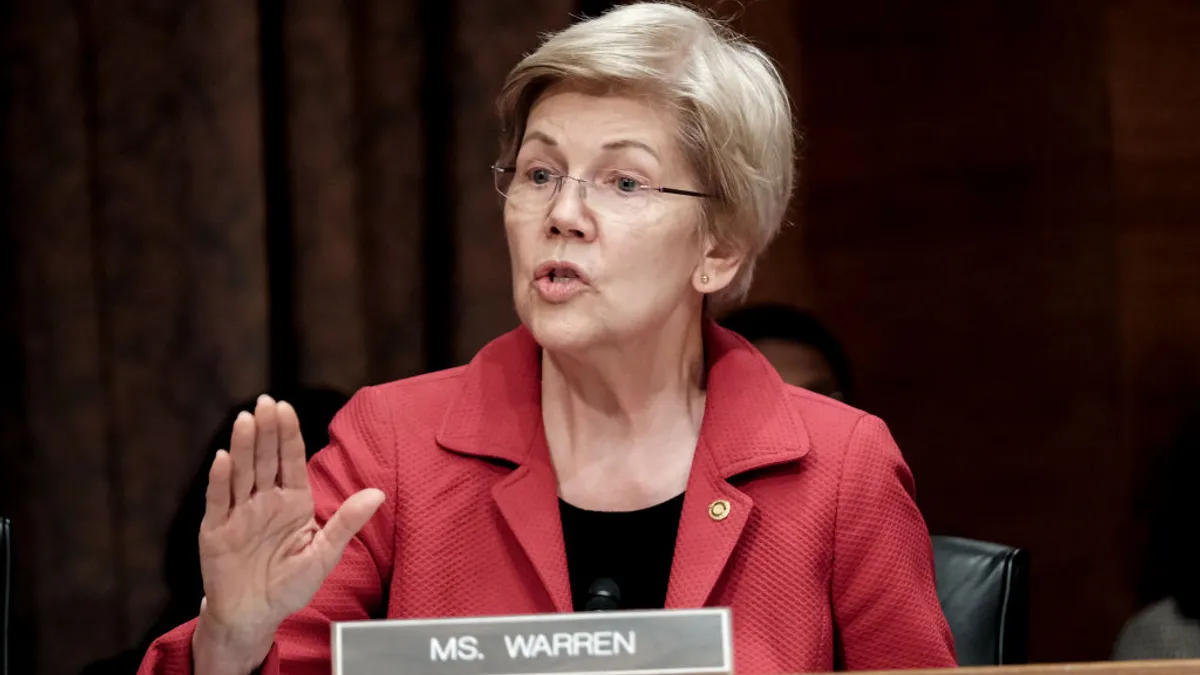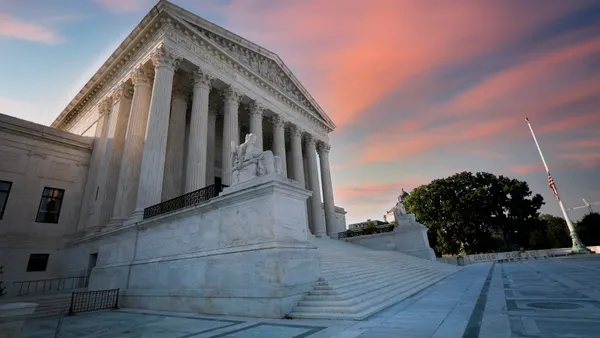Sens. Elizabeth Warren, D-MA, and Andy Kim, D-NJ, are calling for a moratorium on commercially owned industrial loan company charters until such entities are defined as “banks” under the Banking Holding Company Act.
“A moratorium would provide Congress with an opportunity to address a longstanding crack in the wall separating banking and commerce before it becomes a chasm,” the senators wrote Monday in a letter to Federal Deposit Insurance Corp. Acting Chair Travis Hill.
At present, several corporations are waiting on ILC charter applications to be approved. Through such charters, companies can offer banking services without the regulatory burden of a traditional bank holding company, giving them great control over lending and customer data.
Automaker Nissan applied for an ILC charter in June, seeking “greater flexibility to serve dealers more efficiently and competitively – so they can better serve their customers,” Kevin Cullum, president of Nissan’s financial services arm, said at the time.
Nissan joined GM, Ford and financial services company Edward Jones among applicants this year.
Opponents like Warren and Kim, however, call the ILC charter a “loophole” that “undermines the separation of banking and commerce.”
That separation “promotes competition across the economy by preventing banks from wielding their power to create money and their access to federal deposit insurance to unfairly compete with commercial companies,” the senators wrote. “For example, a company could use a banking subsidiary to lend at below market rates to its commercial business lines, refuse to lend to its competitors, or sell failing assets to the banking subsidiary to shift losses to taxpayers.”
Should the FDIC not impose a moratorium on ILC charters, Warren and Kim called on the agency to “rigorously” evaluate applications against the legal standard for approval.
“Many ILC applications do not pass muster and must be denied under the law,” they wrote.
The Independent Community Bankers of America penned a letter to the FDIC in March opposing GM’s charter application, writing that ILCs “owned by commercial parent companies cannot function as neutral arbiters of credit due to the inherent conflict of interest at the heart of their business model” and that they “pose an undue risk of losses to the [Deposit Insurance Fund] and add unnecessary systemic risks that harm the entire banking system.”
Michele Alt, co-founder of financial services advisory and investing firm Klaros Group – who also helped prepare Nissan’s application – said in June that new banks “increase competition and market participation and promoting competition is a bedrock principle of our democratic economy.”
She pushed back against the idea of ILCs as loopholes.
“An ILC is a lawful charter type that the FDIC is directed to approve if an applicant satisfies applicable statutory criteria, and opposition by competitors is not part of that approval criteria,” Alt said.
In July, the FDIC withdrew a proposal from August 2024 that would have required industrial loan company charter applicants to prove their independence from their parent firms and let the FDIC evaluate whether an ILC would meet its community’s lending needs.
The FDIC also called for public comment to inform its ILC policies.
In their letter, Warren and Kim note that ILC applications “tend to violate the statutory factor related to the convenience and needs of the community,” in that ILCs that “exclusively serve the customers of the parent company do not serve a ‘community’ at all.”
“The entire purpose of the proposed ILC is to gain access to cheaper funding in the form of taxpayer insured deposits,” they wrote. “It is not even clear that the parent company’s customers would benefit from this cheaper funding, as the financial benefits of the federal safety net may simply accrue to the executives and shareholders of the parent company.”














